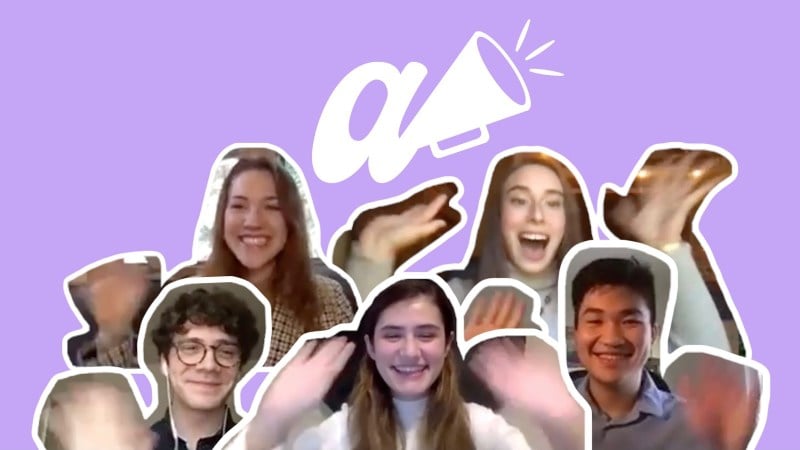Asmbl, a social networking app seeking to build a “safe, centralized and transparent” space for everyday advocates, plans to launch beta testing in the coming months. Even before its official release, the team behind this app is drawing attention: The Social Dilemma recently awarded Asmbl a startup grant and mentorship to further develop the platform.
In partnership with LookUp.Live, The Social Dilemma recognized Asmbl in January in an effort to spotlight teams who introduce solutions to “realign tech to serve the interests of people, not profits.” Asmbl will collaborate with 11 other teams to receive advanced mentorship and $2,500 in funds over the next few months.
The team behind the app — Alma Andino-Frydman ’23, Chloe Shrager ’23, James Chao ’23, Grant Bishko ’23 and Anastasia Sotiropoulos ’23 –– said it aims to help students challenge injustices through a united front while restricting misinformation and promoting data security.
“Current apps are not designed for activism and to make actual social change,” Chief Executive Officer (CEO) Andino-Frydman said.
Her involvement with activism during this past year exposed existing barriers and frustrations, including sold data, unlawful detainments and hacked private group chats. In addition, Andino-Frydman witnessed the prevalent irony when Bay Area Facebook protesters used Facebook to organize.
“People were fighting the power but still used apps made by the power,” she said.
After some researching and wondering why there was no specific network for activists, Andino-Frydman took the “natural next step” to invent Asmbl.
Focusing on a user-centric platform, the service deviates from the traditional social media feed of posts and likes, which Andino-Frydman called “addicting and polarizing.” Instead, after users create their accounts and profiles, they should expect to see a collection of different advocacy areas on the home screen.
Interested users can select one of the topic areas and decide whether to click “educate” or “connect.” On these pages, members will interact with published portfolios of resources compiled by other users or view an assortment of users who have authored works within certain categories of advocacy. On the platform, people can design their own infographics to disseminate information “by activists and to activists.”
According to Shrager, the team decided to certify Asmbl as a nonprofit, a feature that sets them apart from competitors and social media companies.
“The only online tools for community organization are these for-profit companies which are ruled by money-making tech CEOs who profit off of misinformation and polarization,” she said.
By operating as a nonprofit entity, Asmbl takes a stand on ethics and morals, especially through outlining guidelines on hate speech and community standards, Andino-Frydman explained. According to her, the team’s goals do not center around maintaining a profitable business but rather “shifting to meet the actual concrete needs” of their user base.
Sotiropoulos also mentioned that the platform intends to work on eliminating social addiction and performative activism by spotlighting connections made by mutual networks instead of a follower-following format.
To facilitate this, Chao and Bishko have led Asmbl’s in-house coding which has allowed the team to not “compromise our vision because of any outside limitations.”
They aim to add features such as secure, end-to-end encrypted messaging portals to eliminate threats of personal data leaks and an event organization tab with an interactive calendar that includes nearby protests and assemblies.
The group hopes to finish up their minimum viable product by this summer and open up beta testing. Once completed, Asmbl will publicly launch to college campuses.
“We want Asmbl to be very accessible, not only for activists but also for those looking to get into activism,” Shrager said.
Harriett Jernigan, a Program in Writing and Rhetoric (PWR) professor, serves as one of the project’s main advisers after learning about Asmbl through Andino-Frydman, one of her past students.
“In rejecting the paradigm of the user as the product, which leads to misinformation and division, Asmbl gives people actual rather than illusory choice and orients its moral compass towards positive social change,” Jernigan wrote to The Daily.
Though physically separated, the entire team regularly meets virtually to work on pitching new ideas and advancing the platform’s goal, Shrager said. They each acknowledge that a collective interest for preserving authentic activism has molded a strong bond among the five throughout the journey so far.
“When we hit roadblocks as a team, it does not even feel like it,” Shrager said. “We simply take it as motivation to try harder and learn.”
